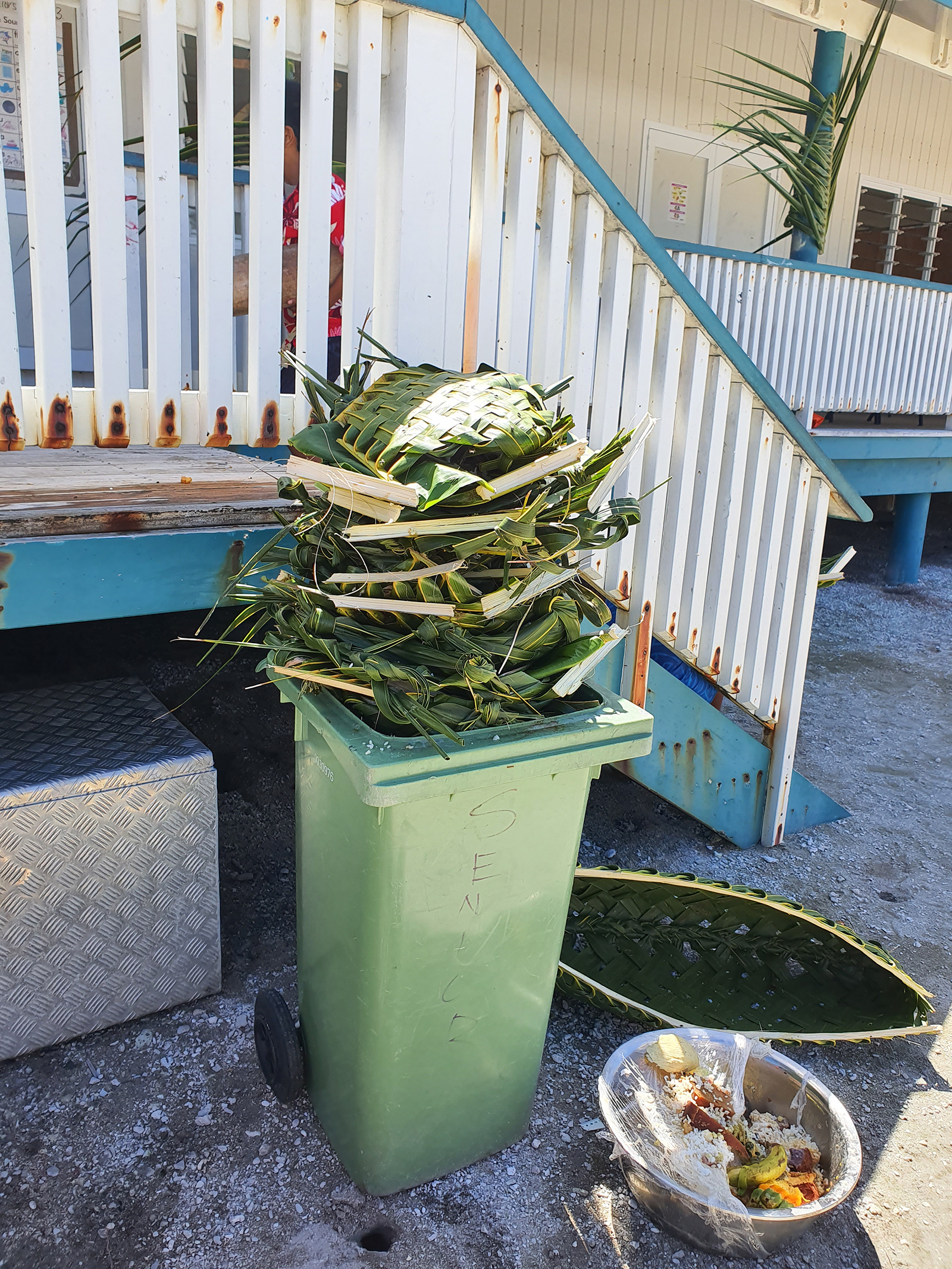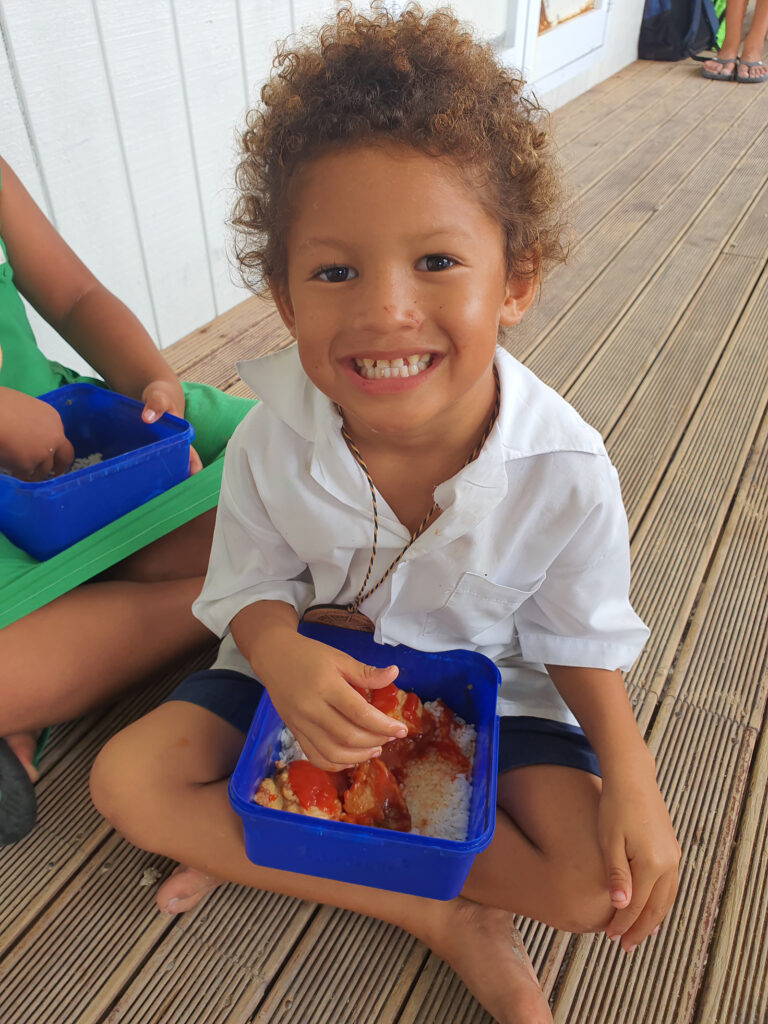Schools can nurture being waste wise
Friday 2 September 2022 | Written by Te Ipukarea Society | Published in Opinion

Omoka School rubbish bin piled with organic woven plates that will breakdown, unlike plastic products. - 22090238
Schools not only play a significant role in education but also have a vital role in establishing sustainable cultures that are practiced within the wider community.
One sustainability trait that can be nurtured is sustainable waste management, where waste minimising behaviours are supported and praised.
Currently, our local schools do not have the facilities or resources to fully recycle all of their waste. This means they incur costs for rubbish collected.
This economic burden on schools’ already overstretched resources could result in some schools burning waste which includes plastics.
Burning plastics is never a good idea. It is not good for the environment and also has health implications, particularly for young bodies still developing, and for those with respiratory problems such as asthma. It is also not ideal for nearby organic school vegie gardens.
Local schools need to be supported with initiatives that try to create less waste in the first place. Less waste overall results in financial savings for local schools as well as nurturing sustainable behaviours for our community.
There are a number of local schools following very good practices in regards to reducing the amount of waste, including plastic waste, generated at school.

For example, Apii Takitumu and Te Uki Ou have a ‘You make the rubbish, you take the rubbish home’ initiative. Here all waste brought to school in lunchboxes is taken back home and disposed of.
‘Simple healthy affordable lunches’ which do not require plastic wrapping, are also promoted through this initiative. Some fruit, bananas, oranges, mangoes for example, usually comes with its own organic wrapper, commonly known as the skin! Whereas snacks purchased from the shops often come in multiple layers of plastic packaging.
Areas of improvement schools would need to consider would involve assessing their school tuck shop. Instead of selling food in plastic plates, cutlery or cups, consider using alternative biodegradable paper or reusable washable products.
Move away from selling products in plastic bottles. In fact, consider the move to just supplying water in schools with students bringing their own reusable drink bottle.
The tuck shop may consider selling nu or making fruit drinks in a large dispenser and selling it as refills. Another option is to put students in charge of selling healthy drinks as a fundraising initiative.
Getting everyone onboard with this “towards zero waste” culture will have its challenges at the start. It would require everyone to be onboard from the parents to the teachers, caretakers and the students.
Boards of trustees, parents and teachers’ associations and the principal will need to support waste wise initiatives and ensure parents are informed about these systems through the weekly assembly and monthly newsletters.
Teachers or student leaders would have to monitor what is being placed in the rubbish bins. They will also need to set an example and remind students how school waste management systems are used correctly.
Caretakers will have an observing role informing and providing feedback on what has improved and what has not.
Students will need to take action by being made responsible for their waste. This could be achieved through monitors who run surveys, make videos, and address school assemblies with what’s working and what’s not.
It’s no easy feat trying to reduce waste when there are many people involved. But remember to celebrate all small and big wins.
Communicate these wins with everyone involved including Te Ipukarea Society, we would love to share your waste wins with the wider community.














































